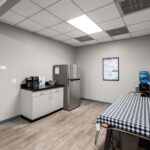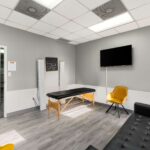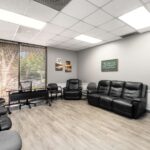
Home » How to Find The Best Rehabs in Georgia
Rehab in Georgia
Our drug and alcohol rehab in Georgia will help you overcome your addiction.
Call Peachtree Recovery Solutions today to get started.
Home » How to Find The Best Rehabs in Georgia
Rehab in Georgia
Our drug and alcohol rehab in Georgia will help you overcome your addiction.
Call Peachtree Recovery Solutions today to get started.
Call us Now!
Find Addiction Treatment Today! Overcome everything that is holding you back!
At Peachtree Recovery Solutions, our rehab in Georgia allows individuals to continue going to school, work, or partaking in daily obligations while still receiving lifesaving treatment needed to overcome drug addiction, alcohol addiction, and dual diagnosis disorders.
With multiple levels of care, we offer options ideal for those who are just stepping down from a detox program or residential treatment program. Staffed with Master’s Level Clinicians, Nurse Practitioners, and addiction and mental health experts, our team believes in a practical approach, allowing clients utilize the tools they’ve learned in treatment in a real-world setting.
Our Georgia Rehab Programs

Drug & Alcohol Detox
Detox is often the first step in recovery from drug and alcohol addiction and the highest level of care in treatment.

Residential Rehab
While we work with local inpatient rehab partners, residential rehab in Georgia provides 24/7 monitoring and accountability

Partial Hospitalization Program (PHP)
Partial Hospitalization Programming is the most intensive form of outpatient treatment that we offer.

Intensive Outpatient Program (IOP)
Intensive Outpatient Programming allows individuals to maintain daily obligations while still partaking in treatment.
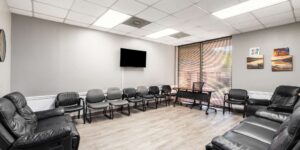
Evening IOP
Evening IOP allows individuals to continue working or going to school while still partaking in treatment during the evening.

Aftercare Program
Aftercare programming is critical to a successful long-term recovery from drug and alcohol addiction.

Sober Living
Sober living homes allow clients to continue the recovery process once treatment has ended.
How Do I Know I Need Rehab?
If you think you need rehab in Georgia, but aren’t certain, there are a number of signs that may indicate you need to attend a professional rehab facility. Some of these include but are not limited to the following:
Despite wanting to cut back on substance use, a person may find themselves unable to do so due to the physical, psychological, and mental aspect of substance use disorder.
When someone becomes dependent on a substance, their body adapts to it being in their system. If they try to stop using, they may experience withdrawal symptoms that can include:
- Physical Symptoms: Nausea, sweating, shaking, headaches
- Psychological Symptoms: Anxiety, Depression, irritability, cravings
More:
Substance abuse can lead to a noticeable decline in both physical and mental health. Physically, this might include weight loss, poor hygiene, and deteriorating physical appearance. Mentally, a person might experience increased anxiety, depression, memory problems, and difficulty concentrating.
Addiction often interferes with daily responsibilities and routines. For students, this might mean falling grades, missed classes, and a lack of interest in school activities. For professionals, it can result in decreased productivity, missed deadlines, frequent absences, and conflicts with colleagues or supervisors. Such declines suggest that substance use is disrupting important aspects of life.
When substance use leads to negative consequences, it’s a clear sign of a problem. These consequences can be wide-ranging, including:
- Legal issues: arrests for DUI, possession, or other related offenses.
- Financial problems: spending excessive amounts of money on substances, leading to debt or financial instability.
- Relationship problems: conflicts, breakups, or estrangement from family and friends due to substance use.
- Health issues: increased risk of accidents, illnesses, or chronic health conditions related to substance abuse.
Our Philosophy
At Peachtree Recovery Solutions, we are committed to providing a holistic approach to addiction treatment that goes beyond sobriety. Our philosophy centers on the belief that true recovery involves healing the whole person—body, mind, and spirit—and that this journey must take place in a setting that mirrors the real world.
Embracing Real-World Recovery
We believe that recovery should be integrated into everyday life. Our Georgia rehab programs provide a structured yet flexible environment where clients can practice new skills and coping mechanisms in real-world settings. By doing so, we help clients transition from treatment to daily life with greater ease and confidence.
Trauma-Healing: Addressing The Root Cause & Dual Diagnosis Treatment
We recognize that trauma is often a root cause of substance use disorders and mental illness. Many of our clients have experienced significant trauma, which can drive the cycle of addiction. Our program places a strong emphasis on trauma-healing as a fundamental component of recovery.
In our commitment to holistic care, we understand that many individuals struggling with addiction also face co-occurring mental health disorders. Our comprehensive dual diagnosis treatment is designed to address both substance use disorders and underlying mental health conditions simultaneously. By integrating psychiatric care with addiction treatment, we ensure that clients receive the balanced and thorough support they need to achieve lasting recovery and mental wellness.
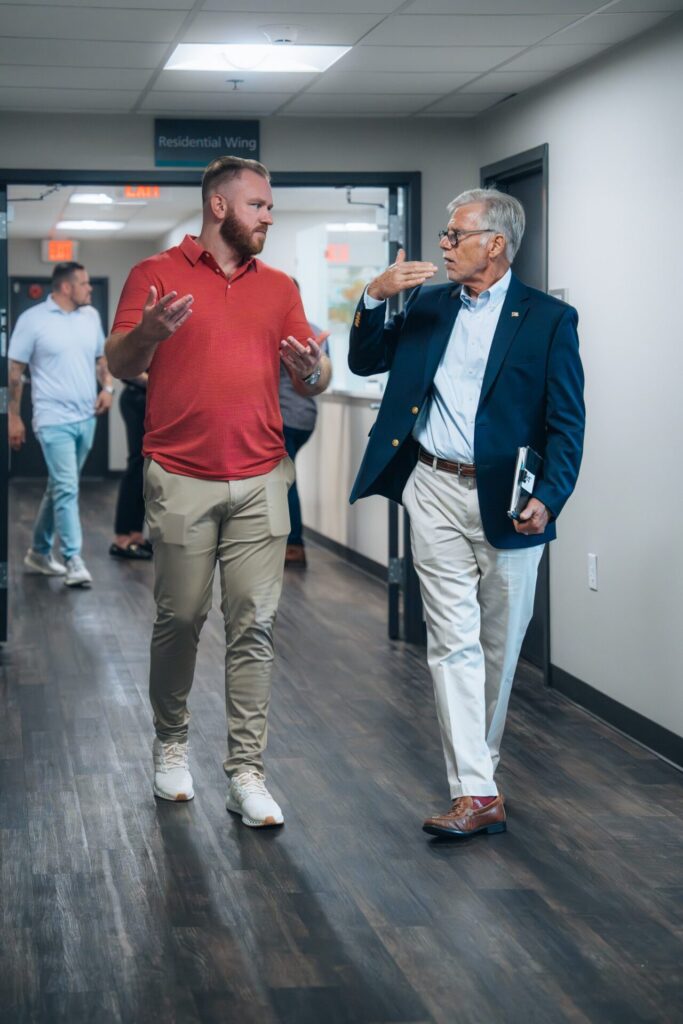
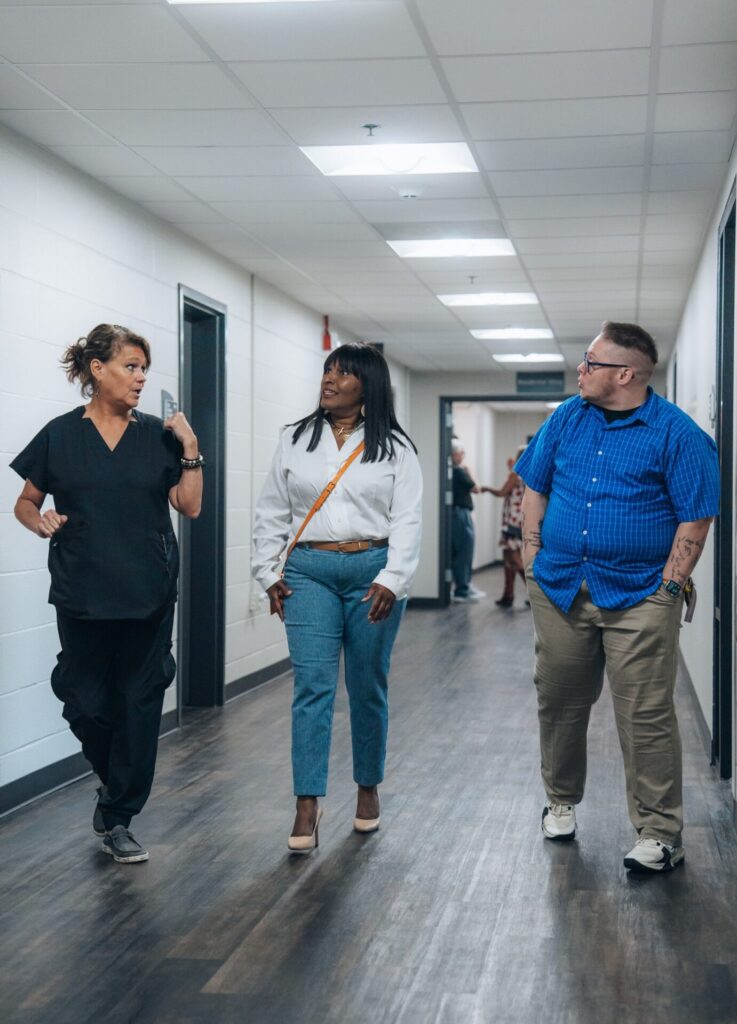
How We Treat Substance Use Disorder (SUD)
At Peachtree Recovery Solutions, we only utilize evidence-based treatment proven to relieve individuals of symptoms and help them foster new coping skills on their road to recovery. We offer the following therapies:
How We Treat Mental Illness
While many of the same evidence-based therapies that help treat substance use disorder, also are proven to treat mental illness. Peachtree Recovery Solutions is not a residential program, we admit clients who are stabilized and struggle with the following mental health disorders:
How Long Does Rehab in Georgia Last?
Depending on the level of care, frequency of use, and clinical appropriateness, our rehab programs can last 30, 60, or 90 days. Most clients in our program step down from a detox or residential treatment facility. However, depending on the needs of the client, someone can admit directly into our program. At Peachtree Recovery Solutions, we encourage clients stay the most amount of time as possible, as studies show the longer a person receives support, the better chances they have at staying sober long-term. However, length of rehab is determined on a case-by-case basis.
Areas We Serve
At Peachtree Recovery Solutions, we’re located in a central location near Atlanta, close to local employment, recovery support groups, and other opportunities. We also cater to the larger state of Georgia, in order to combat the ongoing drug crisis.
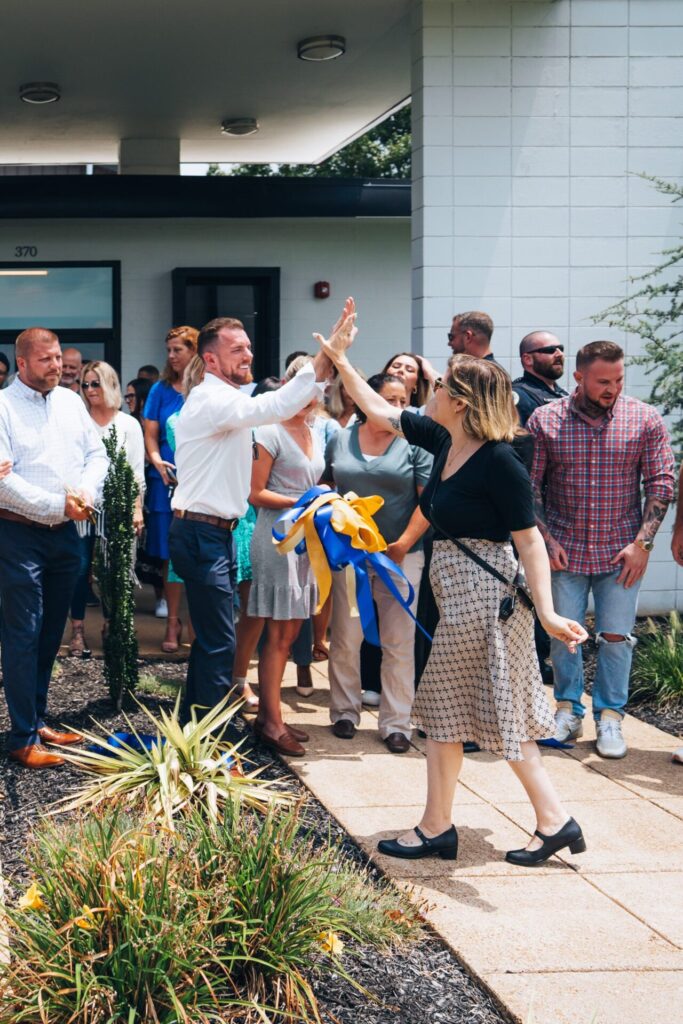
Begin REhab in Georgia Today
At Peachtree Recovery Solutions, we’re a preferred provider of mental health and addiction treatment in the state of Georgia. Our top addiction experts and clinicians can help you turn your life around and find the tools necessary to facilitate recovery. Let us be your guide. Call us now at 678-325-7250 or verify your insurance.
We Work With Most Major Insurance
Did you know most major health insurance plans with out-of-network benefits can help cover most of the costs associated with our rehab program? Click below to find out your coverage and treatment options for our Georgia rehab programs.






More On Our Rehab Programs
Yes, in many instances, insurance can be used to cover the costs of rehab. The Affordable Care Act (ACA) requires most insurers to cover substance use disorder services, including detox, residential treatment, outpatient treatment, and aftercare. However, the extent of coverage can vary significantly depending on the specifics of your insurance plan. Most rehabs provide a free insurance verification to see what insurance will and will not cover.
Going to treatment does not create a criminal record. In the United States, health records, including those related to substance use treatment, are protected by privacy laws such as the Health Insurance Portability and Accountability Act (HIPAA).
HIPAA prohibits healthcare providers from sharing your medical information without your consent, except in specific circumstances (such as when required by law, for public health activities, or for law enforcement purposes in some situations). This means that your treatment generally remains confidential and is not publicly accessible.
In a residential or inpatient treatment program, where you live at the facility and participate in a structured schedule of treatments and therapies, it may be challenging to continue working or attending school. These programs require a significant time commitment, often 24 hours a day for a period of weeks or even months. The goal of these programs are to provide an immersive treatment experience away from the stresses, distractions, and potential triggers of daily life.
On the other hand, outpatient programs are designed specifically to provide treatment while allowing individuals to maintain their daily responsibilities, like work or school. These programs vary in intensity but generally involve attending treatment sessions at the rehab center for a few hours per day or week.
Holistic therapies provide a mind, body, spirit approach and can help individuals create better coping skills while they process their addiction, trauma, and maladaptive behaviors. Some facilities offer yoga, acupuncture, red light therapy and more.






